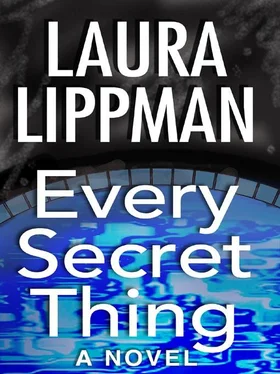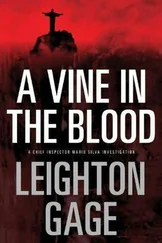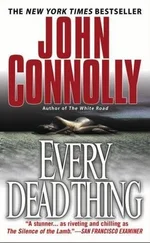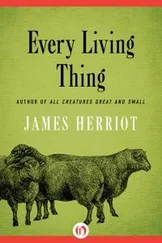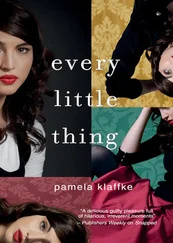When she reached the second aisle, she no longer knew what was happening or how it would end, and then all bets were off, all promises voided. She started trotting the long, diagonal corridor that bisected the store, shouting out Jordan ’s name and trying to imagine the worst. Because if she could imagine a thing, it couldn’t happen.
A child cried, sharp and scared, and Mary Jo ran toward the sound with gratitude and relief. But the child she found on aisle 3 was a boy, his face red from where a hand had just lashed out, his mother glaring at Mary Jo, ready to defend herself. Mary Jo left them, thinking: You are so lucky to have a child to slap . No, that wasn’t quite right. She promised God she would never slap Jordan again, never raise a hand to her in any way if he would just give her back. She didn’t, not often, and she knew it was wrong. Never again, she promised. Never again. You hear me, God?
Other promises followed as she ran a serpentine path through the store, up and down the aisles, calling Jordan ’s name at intervals. She would be a better mother overall, patient and kind, not even yelling. She would be nicer to her sister, although Mimi did have a way of lording over her, making Mary Jo feel like a fuck-up because Bobby had proved to be so unreliable. What else? Oh God, she would be so perfect in every way if Jordan turned up.
“Ma’am. Ma’am.” The pharmacist’s voice was insistent, chiding, a voice of authority. He was going to tell her to stop shouting, stop running. Who was he to say she couldn’t yell, when her baby was missing? “Ma’am-please, ma’am.”
“I’m looking for my little girl, my Jordan. She’s three? Has long curly hair like mine, only kinkier and darker?” She didn’t understand why everything was coming out like a question, as if she needed this strange man to confirm what she was saying. “She was wearing-she was wearing-”
Oh, God, what was she wearing? A dress. Jordan was going through this stubborn phase where she insisted on wearing dresses every day. Green? Blue? A hand-me-down from Mimi’s three girls, something with smocking or embroidery at the top. In the car, Jordan had pulled the top off her Sippee Cup, leaving a dark red stain on the front. Mary Jo had screamed at her because Jordan knew better, she had taken the cup apart to be contrary. But Mary Jo wouldn’t do that, never again. Stains came out if you treated them right. Stains weren’t important.
“Ma’am.” The pharmacist grabbed Mary Jo’s arm and pulled her down a corridor leading to a rest room. There was her cart, with all her things-the toothpaste and the toilet paper and the potato chips and the charcoal and the two plastic lawn chairs in case they cooked out tonight, if Bobby stopped by for dinner. And there was Jordan in the booster seat. Her dress was blue. Right, she knew that. Her daughter’s dress was blue.
Jordan looked scared, and Mary Jo, who could not see her own face, didn’t realize her expression was not much different from when the Sippee Cup had come apart in the car. She grabbed the girl from the cart and covered her with kisses, asking what had happened, demanding to know who had moved the cart, but giving Jordan no chance to answer. She started sobbing, thinking of all the possible bad endings. Only then did Jordan begin to cry and babble. But her three-year-old vocabulary was not up to the task of telling her story.
“Did you see anyone?” Mary Jo asked the pharmacist. “Who would have pushed my cart here? Was she in the way? Who would do a thing like that? What kind of store is this?”
In her mind, she was seeing some employee push the cart aside because it was blocking the aisle. She would sue, she would raise a fuss. What kind of person pushed a cart with a baby into this little corridor by the bathrooms?
The pharmacist shrugged. At dinner that night, he would tell his wife the story, putting all the blame on Mary Jo. His own children were grown. He could afford to be smug, all the near misses his family had known over the years long forgotten.
As for Mary Jo, she never told the story to anyone-not to Mimi, who would have found a way to blame her, or Bobby, who was in a sour mood when he finally dropped by that evening, long after Jordan had gone to bed. He brought a few dollars, but when Mary Jo asked when she was going to start getting a check regular, now that he was working, he said he’d quit if she tried to garnish his wages, that a man couldn’t get ahead in this world if women were always going to be at them. She said he wasn’t much of a man if he couldn’t support his daughter.
It was a familiar argument from start to finish. Bobby slammed out, leaving her to clean up after their cookout. Bobby was always careful to get a meal before he let a fight begin. Mary Jo went to bed alone. He hadn’t even noticed her hair, which she had washed and styled with the new gel. If he had commented on her hair, she might have told him the story of what happened in Rite Aid. Or not. Bobby might have used it against her, and even Mimi would have found a way to blame Mary Jo.
It would be two months before the next child disappeared.
Summer finally began. It began over and over again. It began in mid-May, with a disturbingly early heat wave. It began again on Memorial Day, when the private swim clubs opened for business, even though the heat wave had receded and the weather had reverted to the cold and dreary days of April. It began with each last day of school, district by district, with the city of Baltimore always the last to release its children. It began with the first Code Red day, an index of air, not terror, issued when the heat held the smog too close to the city. It began every Friday about 4 P.M., when the local radio stations reported that the back-ups at the toll plazas for the Bay Bridge were now three miles, four miles, five miles long. It began when the fireflies appeared and a new generation of children tested the folklore that the insects could not fly if one walked with them balanced on a fingertip.
A new summer ritual was also under way that year-the disappearance of children, little girls. They went missing from parks and stores, from yards and porches. But no one noticed, because the girls reappeared minutes later, before their absence had been logged. Even the girls themselves did not seem to recognize the extraordinary thing that had happened to them. Even if they had, they couldn’t have told anyone, for they were toddlers, too young to speak, much less compare notes.
By the time the vernal equinox actually arrived, summer already seemed careworn and used. This happened to be the day that Nancy put on her best suit and went to the courthouse, perhaps the ugliest public building in all of Baltimore County, no small distinction. There, she testified before the grand jury, which needed little encouragement to hand up capital murder indictments against three of the four boys in the New York Fried Chicken killing. The fourth would be tried on robbery and manslaughter charges, which was the deal he had cut for himself. He chose to risk the near-sure death sentence of being a witness, to the guaranteed death sentence given to anyone convicted of a capital crime in Baltimore County.
Duty done, Nancy and Infante met their sergeant at the Italian place on Washington, the chain restaurant that she liked so much. Lenhardt always insisted on treating, claiming the county would pick up the tab, but Nancy suspected these lunches came out of his pocket.
“She going for death?” Infante asked Lenhardt, the she in question being the Baltimore County prosecutor.
“She always does,” Lenhardt said, slathering a bread stick with the restaurant’s trademark tapenade. Nancy was pretending to enjoy a small house salad.
Читать дальше
